If your Coleus is wilting, it could be due to a number of reasons. It could be that the plant is not getting enough water, or that the soil is too dry. It could also be that the plant is getting too much sun, or that the temperature is too hot. Whatever the reason, there are a few solutions that can help. First, make sure that you are watering your Coleus regularly and that the soil is moist. If the plant is getting too much sun, try moving it to a shady spot. If the temperature is too hot, try moving the plant to a cooler location. With a little care, your Coleus should be back to its healthy self in no time.
The Plant Loses Turgidity Due to a Lack of Water
To fix the problem, water your coleus deeply and regularly. If you notice your coleus wilting, it’s likely due to a lack of water. Make sure the soil is moist, but not soggy. If the wilting persists, you may need to increase the frequency of watering. The plant loses turgidity when it doesn’t have enough water, which causes the leaves to droop.
Solution
The most common cause of wilting is lack of water. Lastly, wilting can be caused by pests or diseases. If the soil is dry, the plant will wilt. Coleus prefers partial shade, so if it is in full sun, it will wilt. Inspect your Coleus carefully for signs of pests or diseases and treat accordingly. Another possible cause of wilting is too much sun. If your Coleus is wilting, it is likely due to one of several possible causes. Move it to a shadier spot. Make sure to water your Coleus regularly, especially during hot weather.
Too Much Sun Exposure Cause Loss of Water
This is because the plant loses water faster than it can replace it, causing the leaves to droop and the stems to become weak. The solution is to provide Coleus with some shade, either by moving it to a shadier location or by providing it with a physical barrier from the sun. When it comes to Coleus, too much sun exposure is one of the main causes of wilting.
Solution
It could be that the plant is not getting enough water, or that the soil is too dry. If you’re wondering why your coleus is wilting, there are a few possible explanations. It could also be that the plant is getting too much sun, or that the temperature is too hot.
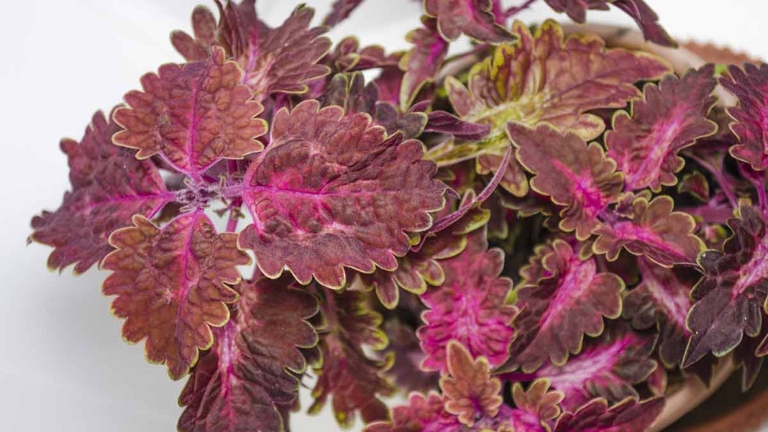
If the soil is too dry, try adding some mulch to help retain moisture. If you think that the plant is not getting enough water, try watering it more frequently. If the temperature is too hot, try moving the plant to a cooler location. If you think that the plant is getting too much sun, try moving it to a shadier spot.
Coleus Wilt Due to Temperature Shock
Coleus is a tropical plant that is typically grown as an annual in temperate climates. However, Coleus is not tolerant of cold temperatures and will wilt when exposed to temperatures below 50 degrees Fahrenheit. In the summer, Coleus can tolerate high temperatures and even some drought.
Temperature shock can occur if the plant is moved from a cool location to a warm location, or vice versa. Coleus wilt is often caused by temperature shock, which occurs when the plant is exposed to sudden changes in temperature. Coleus plants that are grown indoors are especially susceptible to temperature shock.
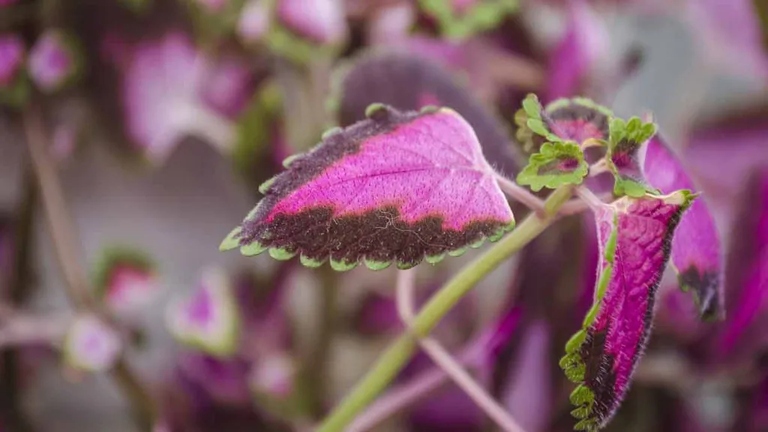
Finally, make sure that the Coleus plant has plenty of moisture. If you know that the temperature is going to drop suddenly, bring the Coleus plant indoors or protect it with a frost cloth. Water the plant deeply and regularly, especially during periods of hot, dry weather. First, try to acclimate the plant to changes in temperature gradually. There are a few things that you can do to prevent temperature shock in Coleus plants.
Solution
Finally, wilting can also be a sign of root rot, which is caused by overwatering. Make sure to water your coleus regularly, especially during hot weather. If you’re wondering why your coleus is wilting, there are a few potential causes and solutions. If your plant is in full sun, try moving it to a shadier spot. Another possible cause is too much sun. Coleus plants prefer filtered sunlight or partial shade. One common reason is that the plant is not getting enough water. If you think this may be the problem, try replanting your coleus in well-draining soil.
Low Humidity Increases Transpiration
If you notice your coleus wilting, it could be due to low humidity. Transpiration is the process of water vapor escaping from plants, and it increases in dry conditions. Low humidity also causes leaves to lose water faster than they can replace it.
First, mist the leaves with water a few times a day. If the air in your home is very dry, you may need to take extra measures to increase the humidity. You can also set the plant on a tray of pebbles and water, or use a humidifier. There are a few things you can do to increase the humidity around your coleus.
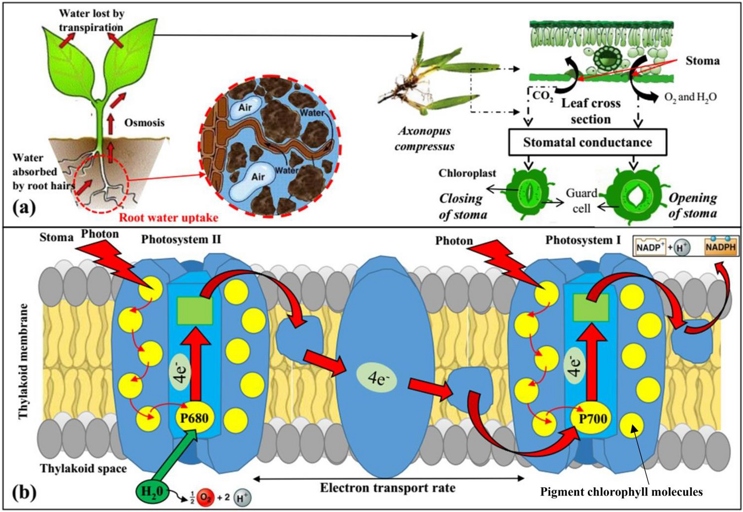
If the air is too dry, they will start to wilt. Coleus are native to tropical regions and prefer high humidity. By increasing the humidity, you can help your coleus stay healthy and prevent wilting.
Solution
If your Coleus is wilting and the leaves are turning yellow or brown, it’s likely due to sunburn. If you think your plant may have root rot, check to see if the roots are mushy or discolored. Another potential cause of wilting Coleus is root rot, which is often caused by overwatering. Move your plant to a shadier spot and make sure to water it regularly. With a little troubleshooting, you should be able to get your Coleus back to looking healthy and happy in no time! One common reason for wilting Coleus is simply due to too much sun exposure. Inspect your plant carefully for any signs of pests or disease and treat accordingly. When it comes to wilting Coleus, there are a few potential causes and solutions to consider. If they are, you’ll need to replant your Coleus in fresh, well-draining soil. Finally, wilting can also be caused by pests or diseases.
Wrong Potting Medium
While coleus is tolerant of a wide range of soil types, it does best in a light, well-draining potting mix. If you’re noticing that your coleus is wilting, it could be a sign that you’re using the wrong potting medium. If your coleus is potted in a heavy, clay-based soil, it may not be able to get the moisture it needs, causing the leaves to wilt.
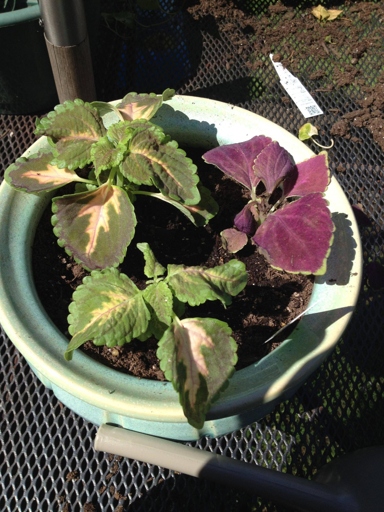
If the leaves start to wilt again, it may be a sign that you’re watering too much or not enough. You can find a potting mix specifically designed for coleus at your local garden center. To fix the problem, you’ll need to repot your coleus in a light, well-draining potting mix. Once you’ve repotted your coleus, be sure to water it regularly and keep an eye on the soil moisture level.
Solution
If your Coleus is wilting due to root rot, you can try replanting it in fresh, well-draining soil. Another common cause of wilting is root rot. If your Coleus is wilting due to heat stress, you can try moving it to a cooler location or providing it with additional water. Finally, if your Coleus is wilting due to a lack of water, you can try watering it more frequently. If your Coleus is wilting, there are a few potential causes and solutions. One common cause of wilting is heat stress.
Root Rot
Root rot is a common problem with coleus plants. The fungus can also spread to the stem of the plant, causing it to wilt. If you think your plant has root rot, you can try to save it by replanting it in fresh, dry soil. The best way to prevent root rot is to water your coleus plant only when the soil is dry. The roots of the plant become infected with a fungus, which causes them to rot. This can happen if the plant is overwatered, or if the soil is too wet.
Solution
If your coleus is wilting, it could be due to a variety of reasons. Make sure to check the soil regularly and water the plant when the soil is dry. The most common reason is that the plant is not getting enough water. You may also need to adjust your watering schedule if you live in an area with high humidity.
If you think your plant is getting enough water, the next most common reason for wilting is too much heat. Coleus plants prefer cooler temperatures and will start to wilt if they get too hot. Move your plant to a shadier spot or provide it with some artificial shade if you think it is getting too much sun.
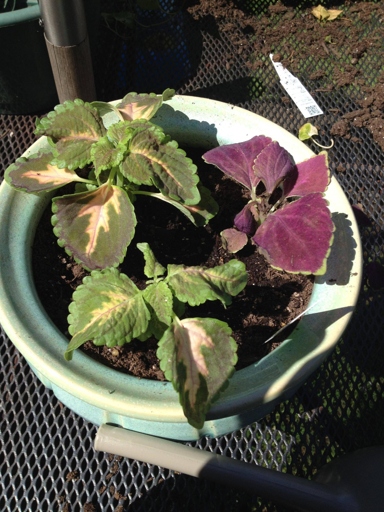
Contact a plant specialist for help diagnosing and treating the problem. Finally, wilting can also be a sign of disease. If you notice your plant is wilting and has other symptoms like yellowing leaves or spots, it may be infected with a virus or fungus.
Coleus Planted in The Same Potting Medium for Too Long
When the potting medium becomes too saturated with water, it doesn’t allow the roots to breathe, causing the plant to suffocate and die. The main cause of this problem is a lack of drainage. However, if left in the same potting medium for too long, the plant will eventually wilt and die. Coleus is a beautiful, easy-to-grow plant that adds vibrant color to any landscape.
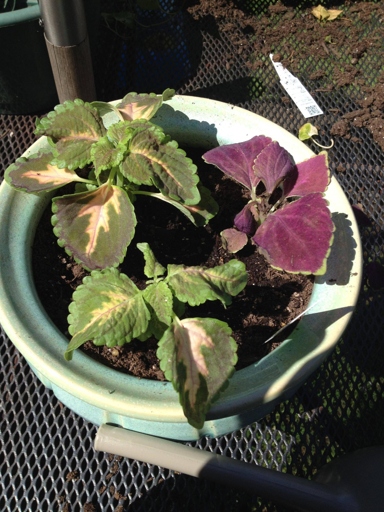
This will ensure that the plant has fresh, well-drained potting medium to grow in. If you notice your Coleus starting to wilt, be sure to check the potting medium and make sure it’s not too wet. If it is, simply repot the plant in fresh, dry potting medium and it should recover quickly. It’s also a good idea to add a layer of gravel or rocks to the bottom of the pot to help with drainage. To avoid this problem, it’s important to repot your Coleus every year or two.
Solution
If your plant is in direct sunlight for more than six hours a day, it will start to wilt. Once the plant has been watered, it should perk back up within a few hours. Be sure to water the plant thoroughly, until water is coming out of the drainage holes at the bottom of the pot. Another common cause of wilting is too little water. To fix this, simply move your plant to a shadier spot. One common cause of wilting is too much sun. If your coleus is wilting, there are a few potential causes and solutions. If it does not, there may be another issue at play. If your plant is wilting and the soil is dry to the touch, it needs to be watered.
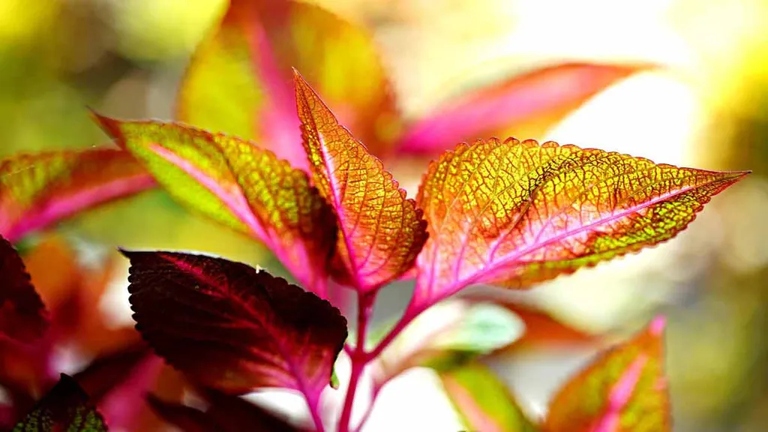
If your coleus is wilting and you have ruled out too much sun and too little water, it could be a sign of a more serious issue, such as root rot or a pest infestation. If you suspect either of these, it is best to consult with a professional. They will be able to diagnose the problem and recommend the best course of action.
Coleus Wilting After Repotting
The most common cause is overwatering, which can cause the roots to rot. Other causes include insufficient drainage, too much sun, or too little sun. Coleus wilting after repotting is a common problem that can be caused by a number of factors.
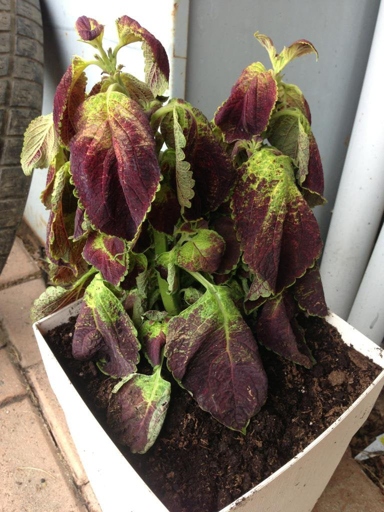
If the plant is getting too little sun, you can try moving it to a sunnier spot. If the problem is insufficient drainage, you can try repotting the Coleus in a pot with drainage holes. If the plant is getting too much sun, you can try moving it to a shadier spot. If you suspect that overwatering is the cause of your Coleus wilting, the best solution is to let the plant dry out completely before watering it again.
Solution
Water it thoroughly and then check the soil again in a few hours to see if it has improved. Make sure to water your coleus regularly, especially during hot weather. Move it to a shadier location and see if that helps. Another possibility is that the plant is getting too much sun. If the soil is too dry, the plant may also wilt. Coleus prefer shady areas, so if it’s in a sunny spot, it may start to wilt. If your coleus is wilting, it could be due to a number of reasons. The most common reason is that the plant is not getting enough water.
Coleus Repotting at The Wrong Time of Year
Coleus is a beautiful, easy-to-grow houseplant that adds color and interest to any indoor space. However, if you repot your coleus at the wrong time of year, you may end up with a wilting, unhappy plant.
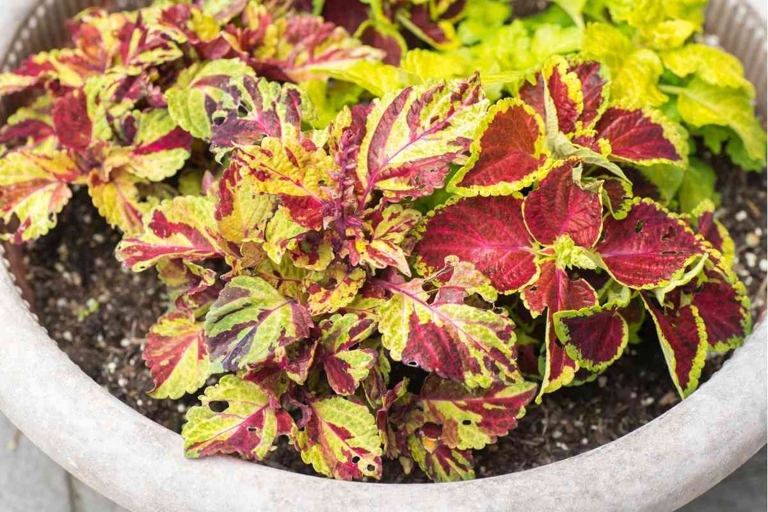
If you repot your coleus in the summer, it may not have enough time to recover from the shock of being transplanted and could end up wilting. This allows the plant to put down new roots and establish itself in its new pot before the hot summer months arrive. The best time to repot a coleus is in the spring, after the last frost has passed.
With a little extra care, your coleus should be back to its beautiful self in no time. If you must repot your coleus in the summer, be sure to water it well and keep it in a shady spot until it has acclimated to its new pot.
Solution
If your coleus is wilting, it’s likely due to one of three reasons: too much sun, too little water, or too much fertilizer. Each of these problems has a simple solution.
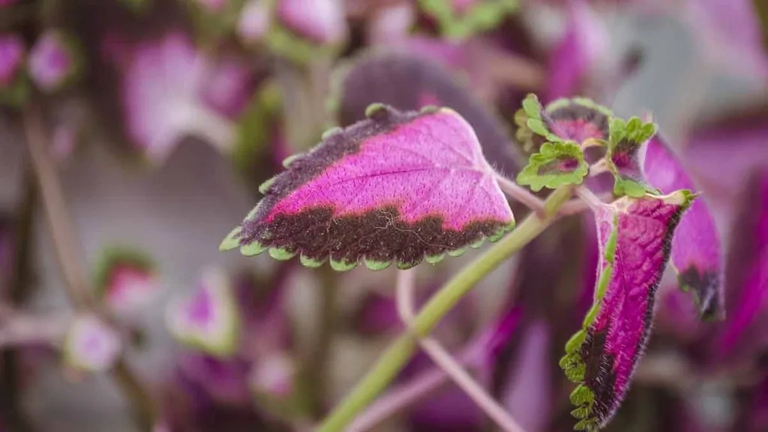
Too much sun: Coleus does best in partial shade, so if it’s getting too much sun, simply move it to a shadier spot.
Too little water: Water your coleus deeply and regularly, especially during hot, dry weather.
Too much fertilizer: If you’ve been fertilizing your coleus too frequently, cut back to once every two weeks.
How To Revive Wilted Coleus
There are a few things you can do to revive your plant. If your coleus is wilting, don’t despair!
Wilting can occur when the soil is too dry or too wet. First, check the soil moisture. If the soil is too wet, allow the plant to drain and dry out for a few hours before watering again. If the soil is too dry, water your plant thoroughly.
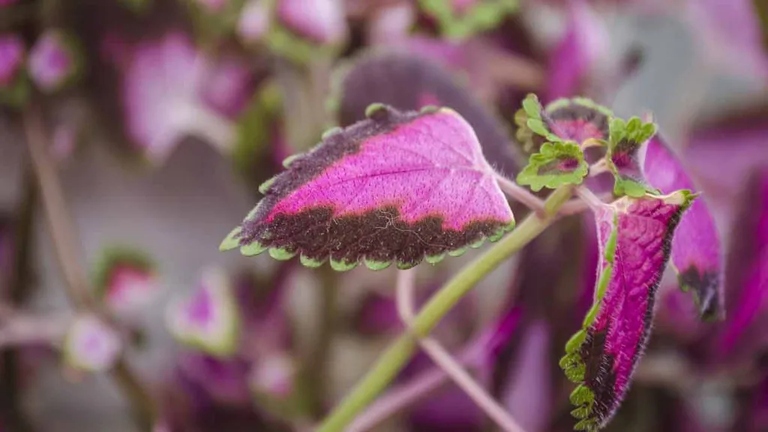
Next, check for pests. If you see any pests on your plant, remove them with a cotton swab dipped in rubbing alcohol. Aphids, whiteflies, and mealybugs can all cause wilting.
If you suspect your plant has a disease, consult a professional for treatment options. Finally, check for diseases. Common diseases that affect coleus include root rot and powdery mildew.
With a little TLC, your wilted coleus will be back to its vibrant self in no time!
Frequently Asked Questions
1. Why is my Coleus wilting?
There are several potential causes for Coleus wilting, including heat stress, underwatering, and fungal diseases.
2. What are the symptoms of Coleus wilting?
The symptoms of Coleus wilting include drooping leaves, browning leaves, and stunted growth.
3. How can I prevent Coleus wilting?
There are several preventive measures you can take to avoid Coleus wilting, including watering regularly, providing adequate drainage, and avoiding overhead watering.
4. What is the best way to water Coleus plants?
The best way to water Coleus plants is to water them deeply and less frequently, allowing the soil to dry out slightly between waterings.
5. How often should I water my Coleus plant?
How often you need to water your Coleus plant will depend on the plant’s size, the type of soil it’s grown in, and the weather conditions. In general, Coleus plants should be watered every 7-10 days.
6. What are some common fungal diseases that can cause Coleus wilting?
Some common fungal diseases that can cause Coleus wilting include Pythium root rot and Rhizoctonia root rot.
7. What are the symptoms of Pythium root rot?
The symptoms of Pythium root rot include wilting, yellowing leaves, and stunted growth. The roots of the plant may also appear black and mushy.
8. What are the symptoms of Rhizoctonia root rot?
The symptoms of Rhizoctonia root rot are similar to those of Pythium root rot, including wilting, yellowing leaves, and stunted growth. The roots of the plant may also appear black and mushy.
9. How can I treat Coleus wilting caused by Pythium root rot?
Pythium root rot can be difficult to treat, and often the best course of action is to remove the affected plant and destroy it.
10. How can I treat Coleus wilting caused by Rhizoctonia root rot?
Rhizoctonia root rot can be treated with fungicides, but it is important to catch the disease early for the best chance of success.
Final thoughts
If your Coleus is wilting, there are a few potential causes and solutions. First, check to see if the plant is getting enough water. If the soil is dry, give the plant a good watering. If the plant is getting too much water, however, the roots may be waterlogged and the plant will need to be transplanted to a drier location. Another potential cause of wilting is lack of sunlight. Coleus plants need at least four hours of sunlight each day, so if yours is not getting enough light, move it to a sunnier spot. Lastly, pests and diseases can also cause Coleus plants to wilt. If you suspect your plant is sick, take a sample to your local nursery or Cooperative Extension office for diagnosis and treatment.
